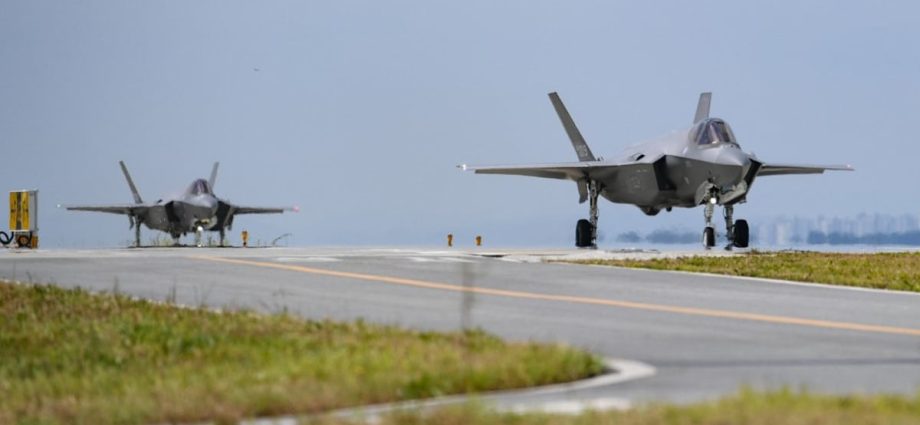
The three allies also reiterated their commitment to freedom of navigation in the disputed South China Sea.
China has in recent years ramped up military and political pressures on Taiwan, which it claims as its territory.
To reinforce that both the Taiwan Strait and the South China Sea are international waterways, Washington and its Western allies have increased “freedom of navigation” crossings by naval vessels, angering Beijing.
Nuclear-armed North Korea last month put a military spy satellite into orbit, with Seoul saying it did so with Moscow’s help, in return for supplying weapons for use in Russia’s war with Ukraine.
The satellite launch has since fractured an inter-Korean military agreement established to de-escalate tensions on the peninsula, with both countries ramping up security along the demilitarized zone separating them.
In June, South Korea deployed fighter jets in response to Chinese and Russian warplanes near its airspace, as the two countries conducted joint air force patrols over the Sea of Japan and the East China Sea.
Military jets from Moscow and Beijing also entered and exited Seoul’s KADIZ in November last year, prompting the South to scramble its fighter jets.
Similar to the incident on Thursday, none of them violated South Korea’s airspace at that time

